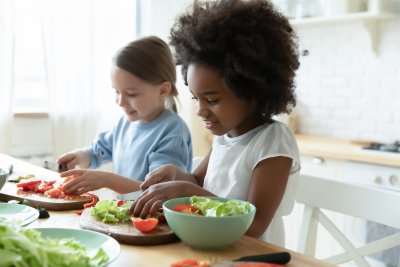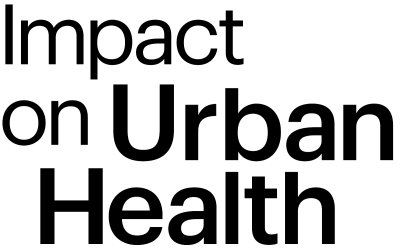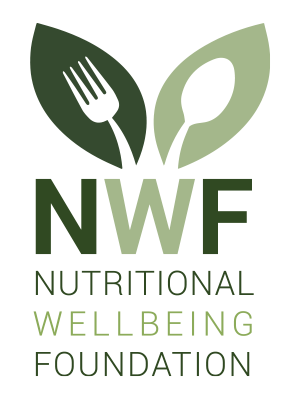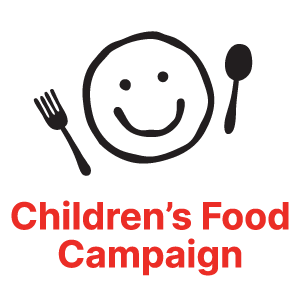SAY YES to School Food For All

Just like desks, books and bathrooms, we should give school food to every child.
We want to change the UK school meals’ policy. Just like desks, books and bathrooms, we should give school food to every child. Join the campaign - add yourself to the map.
Healthy food fuels concentration and learning, supports children’s overall health and wellbeing in school, and would be a great investment in our future economy.
We already do this for children up to 7. Now it’s time for the Government to SAY YES to school food for all.
SAY YES and add your name to our campaign map.
Did you know?
- A free school meal is worth £475 per child per year to a family.
- Every £1 invested in universal school meals would result in £1.71 economic return over the next 20 years.*
National campaign supporters
2Share with your friends, family, workplaces and networks.
3Print off your personalised SAY YES certificate and display it where everyone can see it.
Benefits of school food for all
Boosts attainment and attendance, and increases a child’s lifetime earnings.
Improves food security and helps families save on food costs.
Improves diet quality and helps combat childhood obesity, saving the NHS money in the long term.
Useful resources
The superpowers of school food – new evidence pack.
Children’s Food Campaign polling on public support for universal free school meals in primary schools.
Find out more about healthy school food for all.
Why support this campaign
Anyone who agrees with the idea that school food should be provided for all children equally is welcome to sign up to SAY YES. Read the declaration of support for more information.
When you sign up, we’ll use your postcode to place a pin on the map with your name. That way you get to see who else in your area or around the country supports the campaign! Just like a petition, we’ll then hand every name on the map to our Governments later in 2023 asking them to Say Yes in the General Election. Being on the map will allow you to opt into receiving campaign updates and invitations to take more action. We will not store any data for those under 18. See our full privacy policy.
How many UK children currently get free school meals?
- In England, Universal Infant Free School Meals (UIFSM) are currently provided for 1.25 million children in England aged between 3 - 7, and an additional 1.9 million children receive benefit-related Free School Meals. The family earnings threshold for eligibility for free school meals is £7,400, which means an estimated 800,000 school children living in poverty remain excluded. Five London boroughs already provide meals for all primary school pupils, and the Mayor of London announced funding for all primary meals across London for the 2023/24 academic year. Other countries around the world are also delivering school food for all, find out where.
- In Scotland, all primary age pupils in P1-5 receive free school meals, and these are being expanded to P6-7 in forthcoming years.
- In Wales, universal primary meals are being introduced over the next three years.
- In Northern Ireland, there are no universal school meals. The family earnings threshold for eligibility for free school meals is £14,000 (after tax, before benefits).
Why are we calling for a universal approach to school food?
Our state education system is meant to be free at the point of access, so just like tables and chairs, good nutrition is essential for learning and concentration, so why do we not offer school food for all? It is the only part of the school day that is means tested – and we think this is wrong. Research shows that providing healthy meals for all children equally is more effective in reaching those most in need too, as it removes stigma from the whole programme and means no one slips through the net. We absolutely agree that children experiencing food insecurity should be the top priority for any immediate expansion of school food, as part of a progressive vision towards school food for all.
Can we afford school food for all?
Yes! It is an investment in the future, and the Government could budget it that way. Research has found that funding school food for all would cost £1.8 billion a year, plus additional one off infrastructure support costs to cover kitchen upgrades and staffing. A cost-benefit analysis by Price Waterhouse Coopers (PWC), commissioned by Impact on Urban Health, forecasts total economic and wider benefits worth £99.5 billion from 2025-45, against a cost of £24.2 billion over the same twenty-year period. To put that into perspective, here are some examples of how our money is spent on other projects:
- Phase one of HS2 has a budget of £44.6 billion, is set to cost £7 billion a year to 2029, with some estimates suggesting the total project could cost up to £100 billion.
- A parliamentary public accounts committee reported that £4 billion of unused PPE bought in the first year of the Covid-19 pandemic was burned.
- The Eat Out to Help Out scheme, which ran for just one month in August 2020, cost £849 million.
Where would you rather your money went?
Neither hospital food nor prison food are means tested – meals are provided for all. Yet we still means test our children for food in schools. As a result the Child Poverty Action Group has revealed 800,000 children living in poverty are missing out in England alone. It’s time for healthy, nutritious school food for all children in our education system too.
Supported by
This campaign is supported by Impact on Urban Health and the Nutritional Wellness Foundation.
Huge thanks to staff and pupils at Sacred Heart RC Primary School, Battersea for making our SAY YES! film.
A project of the Children's Food Campaign
We all want our children to grow up with nutritious, affordable and tasty food. But for many children across the UK this isn’t the case.







